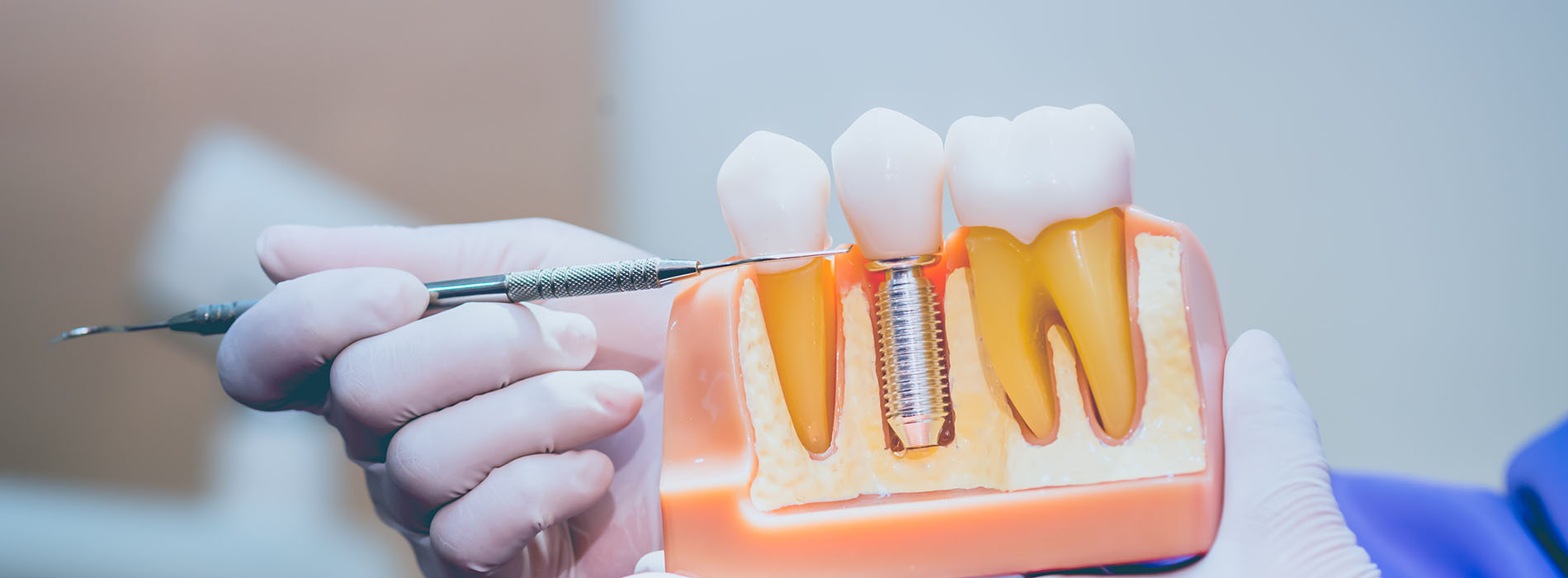

Ongoing Maintenance Instructions for Dental Implant Restorations
Keep Your Routine Dental Appointments
Regular, scheduled oral health checkups ensure that no hidden issues are occurring. Dental implants are highly regarded as sturdy and dependable, yet it is best to have them checked by your implant dentist twice a year (or four times a year for patients diagnosed with periodontal disease).
Home care
Diligently adhere to recommended home care instructions around your dental implant, which include:
Like all positive routines, once a healthy self-care routine is established after receiving dental implants, this home maintenance becomes easy. The cleaner your teeth and gums are, the healthier your dental implants will be, too. As people age, extra care should be given to both hard and soft tissues in the mouth. Ask your dentist for advice so that you don’t floss or rinse too aggressively. Dental floss may also be useful to deliver antiseptic agents to the implant on a daily basis. Floss can be used like a “shoe-shine rag” movement to facilitate optimal home care procedures around the abutment post. Ask your dentist or hygienist if you need further instructions on this technique. If you are concerned about what exactly is proper oral hygiene practice due to postsurgical fear of causing damage, your dentist can help you strike a balance. Ask questions and learn the difference between overzealous home care trying to stay absolutely plaque-free, and a lack of oral care.
Avoid Harmful Habits
Some people struggling to overcome habits of biting their nails, chewing on ice, or favoring hard foods are more at risk of damaging their dental implant restorations. Either can cause damage which means potential additional dental appointments for repairs or replacement. As always, don’t open packaging, cans, or bottle tops with your implant teeth.
If you grind your teeth, adhere to nightly use of a night guard to avoid placing excessive forces on your implant.
Avoid smoking and excessive alcohol intake. Moderation is the key to much of daily living. However, smoking can not only disrupt your dental implant healing process, but it also compromises your bone structure and how the implants fuse with the bone. For most people, it is acceptable to enjoy alcoholic beverages occasionally, however, drinking excessive alcohol is known to increase chances of oral issues.
Alert Your Dentist if Concerns Arise
In the unusual event that soft tissue surrounding your dental implants becomes red, swollen, or irritated, call your dentist. The sooner loose dental implants are fixed, the better. Patients experiencing swelling around implants typically respond to treatment when solutions are put in place early. As with all aspects of your oral health, it involves a close relationship with a trusted dentist.
Most dental restorations last a lifetime if concerns are addressed early. By adhering to this guide on implant care, you may easily manage many factors that could potentially reduce the longevity of your implants. Typically, lifestyle factors are most likely to impact longevity. Most concerns can be addressed before they become issues.
“The long-term success of implants is fundamentally dependent upon both the patient’s maintenance of effective home care and on the dental team’s administration of professional prophylaxis procedures in the dental office. Hence, patients are considered co-therapists in the maintenance therapy and their contribution is indispensable, especially for the long-term success of dental implants. Dental implants require constant maintenance and monitoring, which further involves assessment of the patient’s general and oral health, professional implant maintenance, and diligent patient home care as critical factors that will ensure the long-term success of implants and a predictable replacement for natural teeth.” – Implant Maintenance: A Clinical Update by the National Institute of Health.
Share Your Smile Rewards
Our New Patient Referral Program
Learn More »